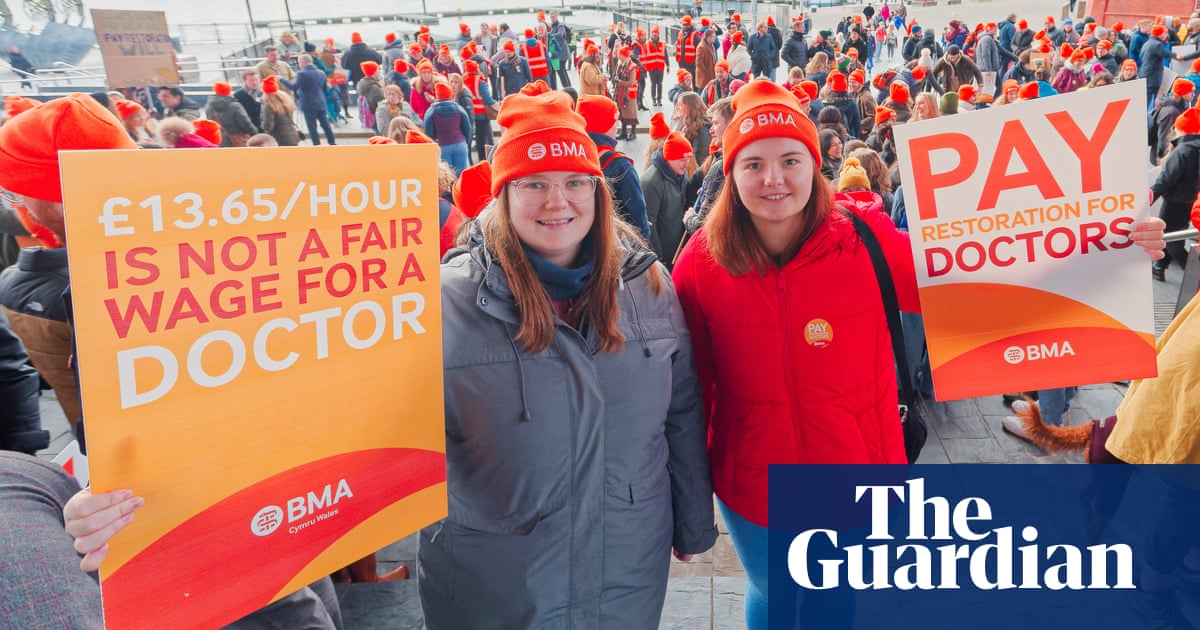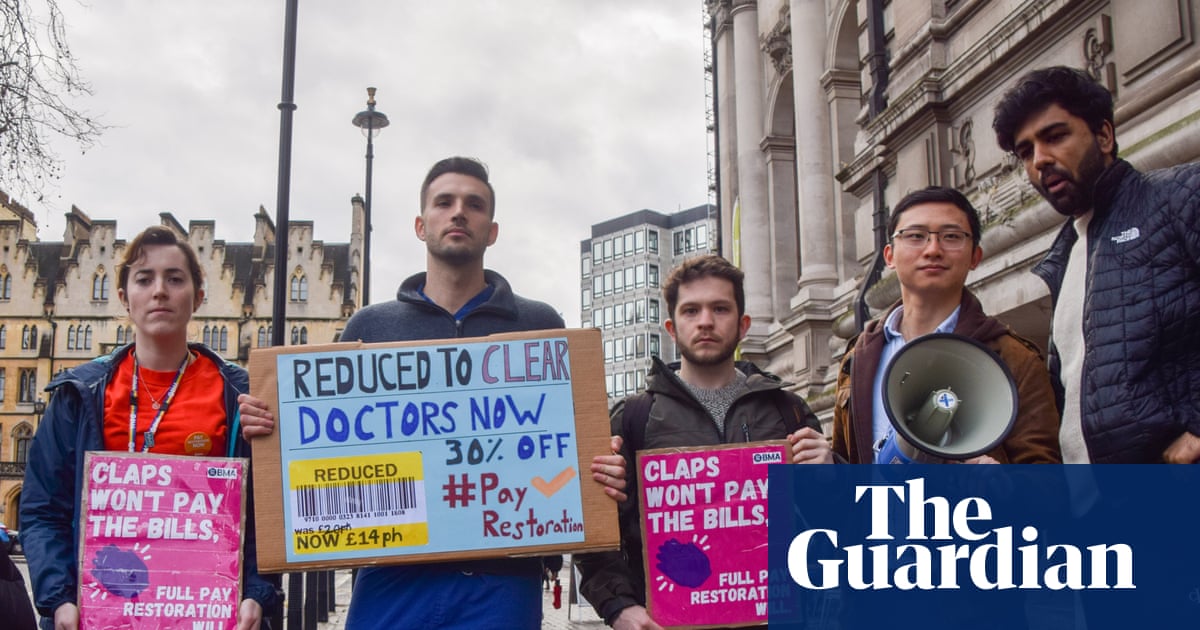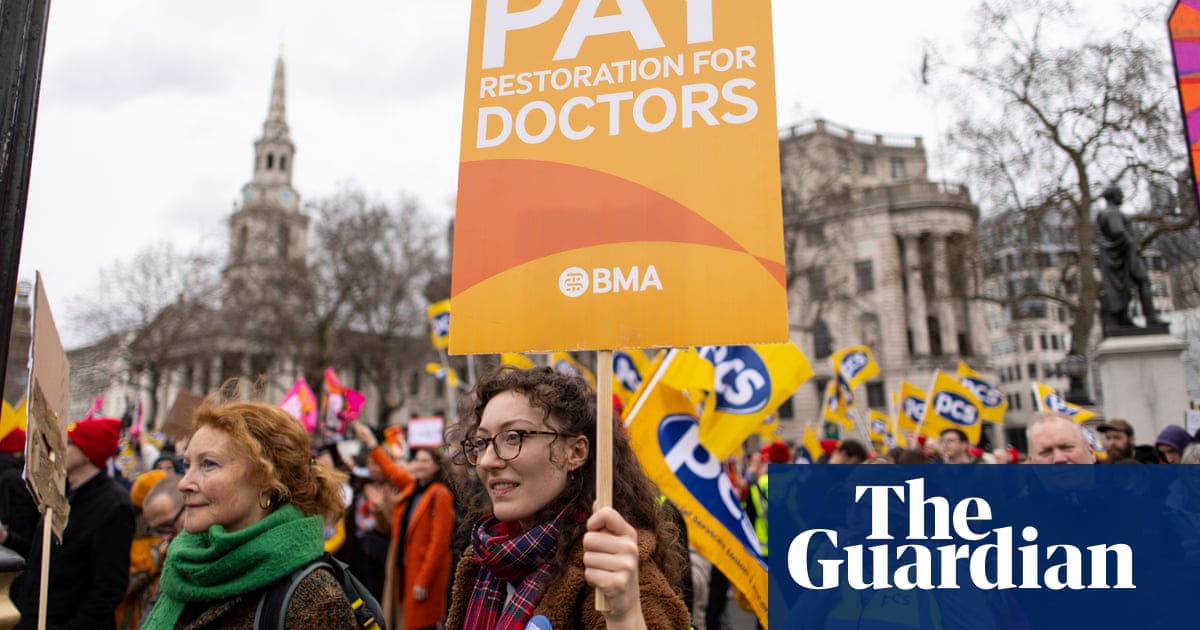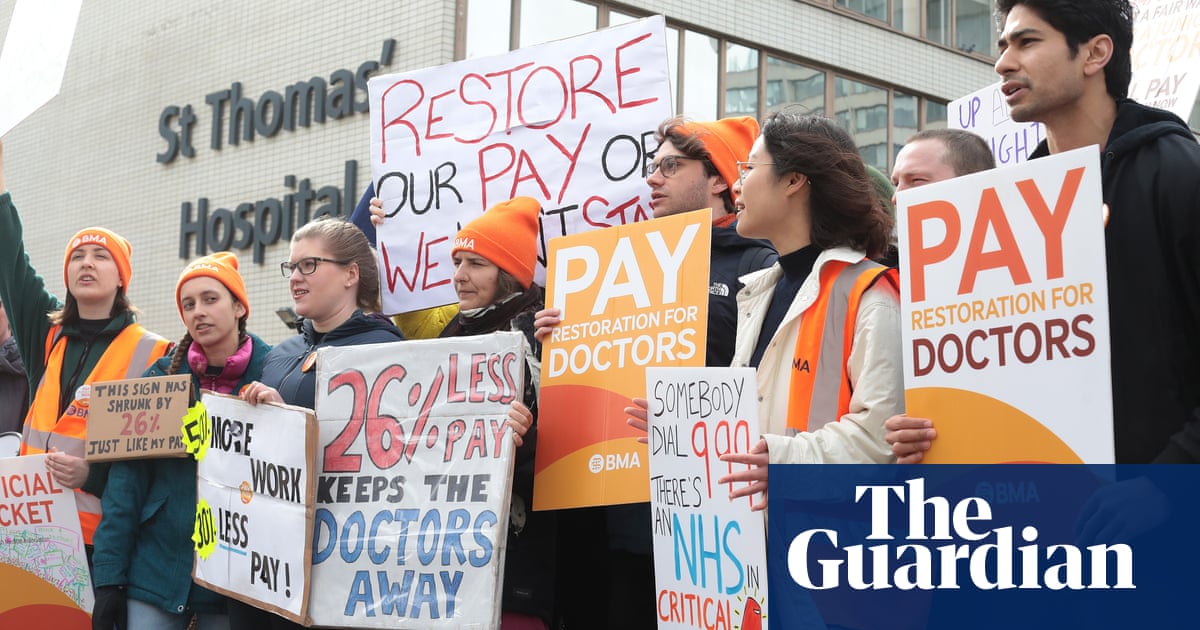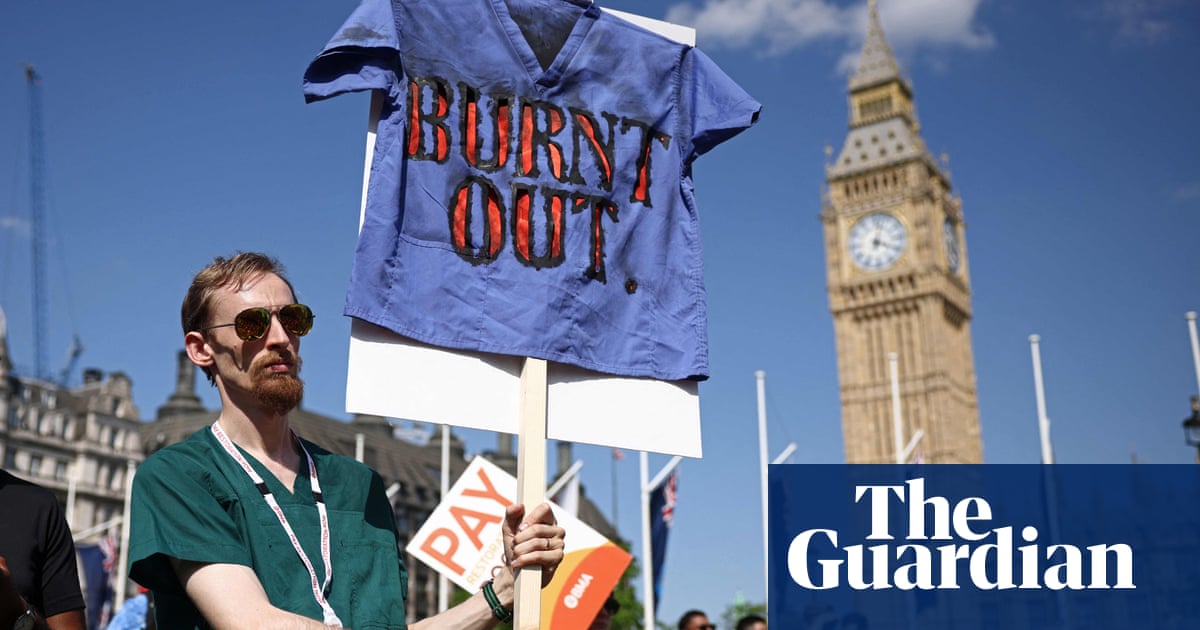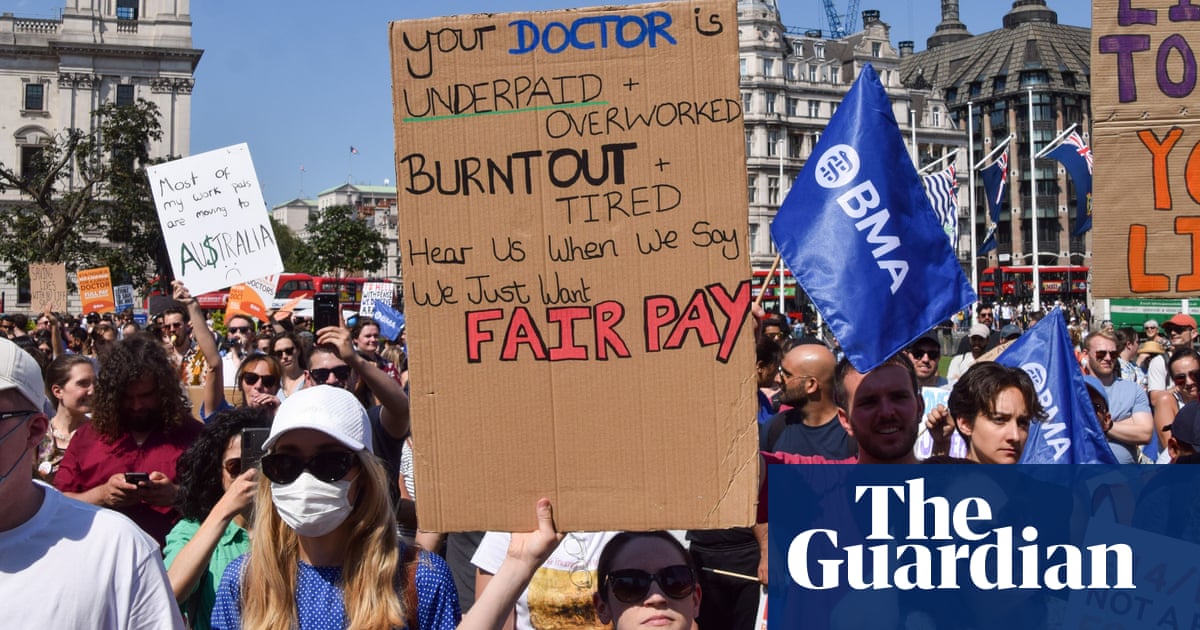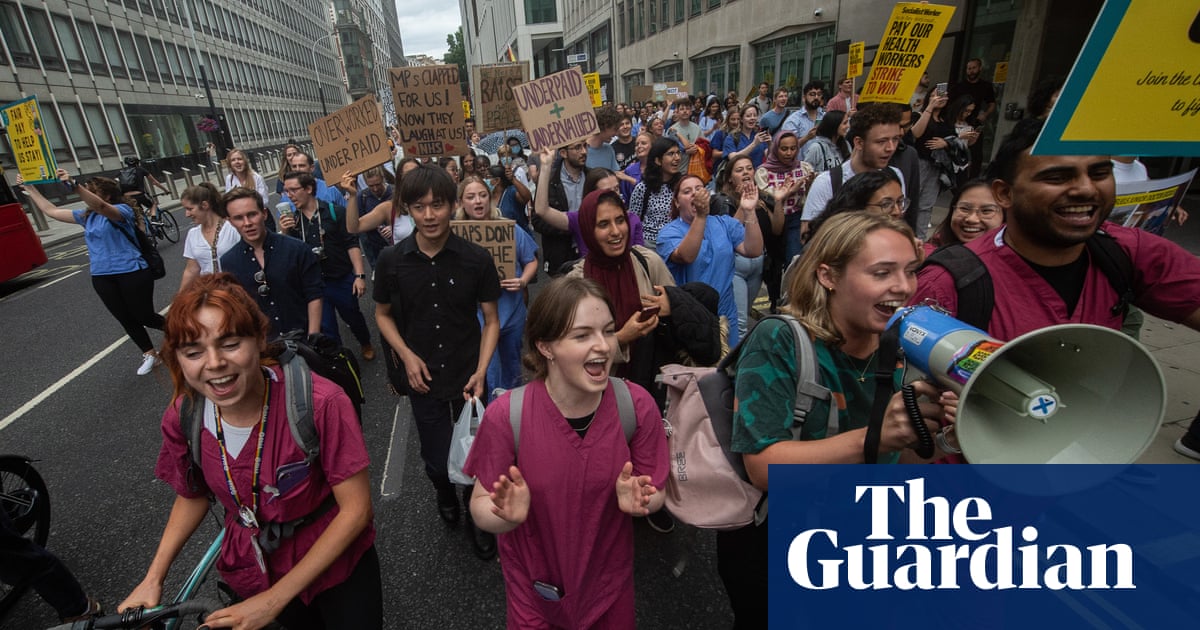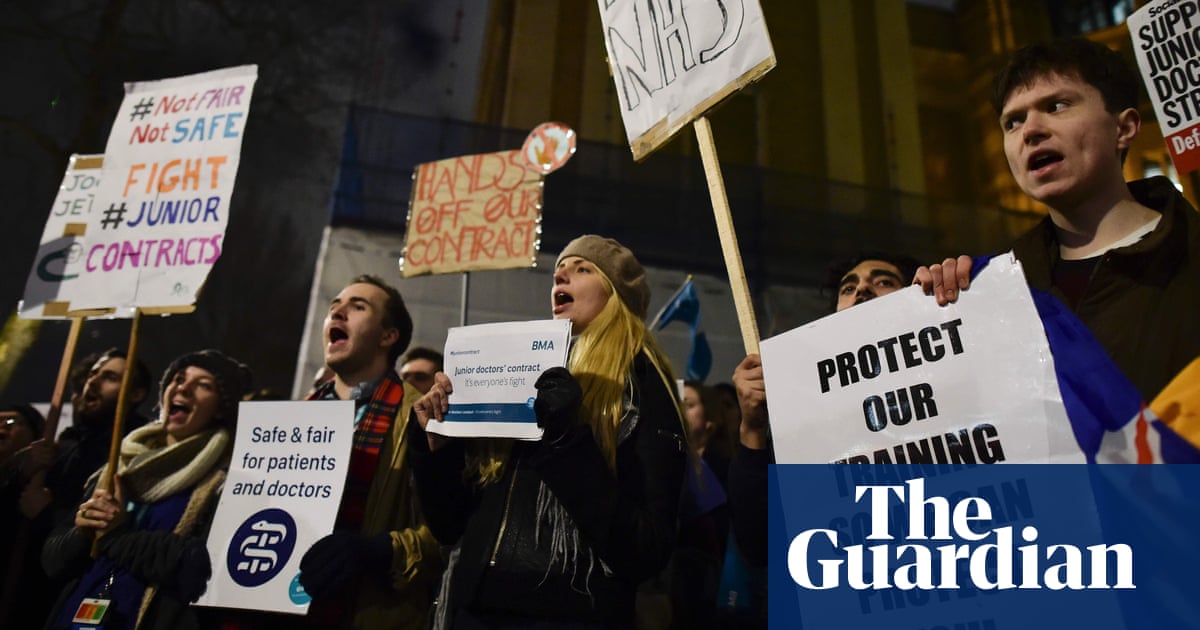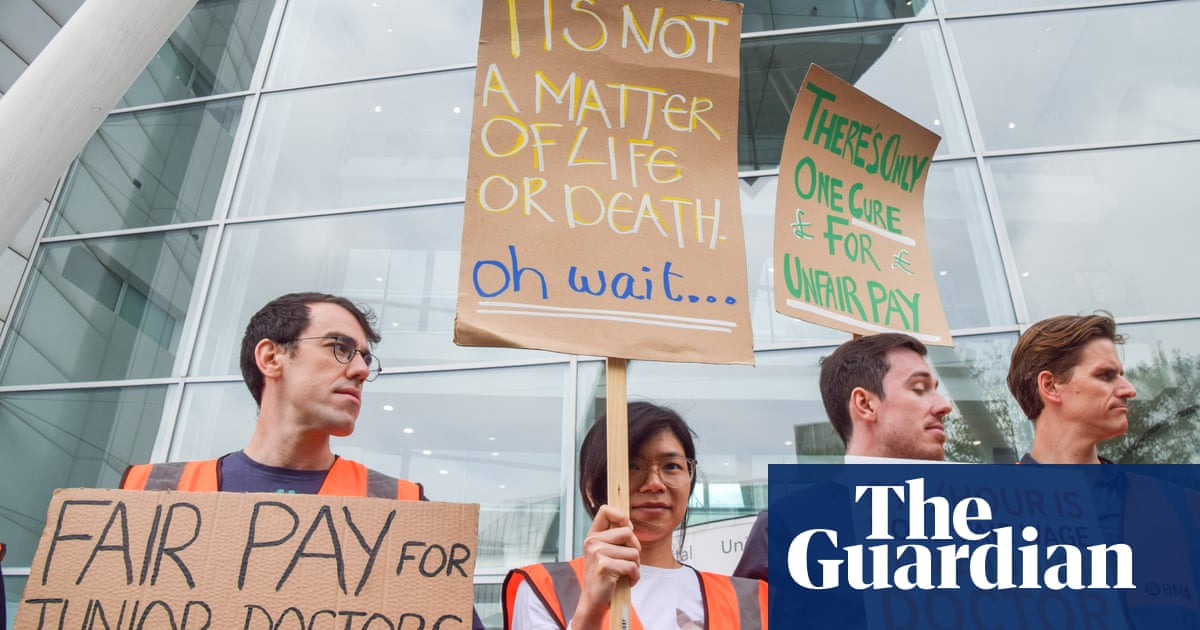
Junior doctors and consultants in England will strike on the same days together for the first time in the history of the NHS, in a dramatic escalation of their bitter pay dispute with the government.
The British Medical Association blamed ministers’ refusal to negotiate over doctors’ salaries for the union’s decision to organise stoppages involving both groups of medics.
The joint action will reduce hospitals and other services in England to providing Christmas Day levels of care for four days in September and October.
They will stage their protests on 20 September and then on 2, 3 and 4 October, during the Conservative party’s annual conference in Manchester.
The combined strikes immediately provoked alarm among health service bosses. The NHS Confederation chief executive, Matthew Taylor, said the joint action was “the nightmare scenario that NHS leaders have long feared” and criticised it as a “step [that] will cause unnecessary delays and distress to patients”.
He added: “It is inevitable that patient safety is at risk.”
Hospital bosses warned that the coordinated strikes would pose “an unprecedented challenge” for the NHS. It has suffered serious disruption because of strikes by nurses, ambulance staff and other staff, and then doctors, that began last December.
That action has already forced the NHS to cancel almost 1m appointments and operations. It has cost the health service about £1bn in having to pay staff to fill gaps in rotas and lost income for surgeries that hospitals have not been able to do on strike days.
The BMA announced the joint stoppages when it unveiled the results of a second ballot of junior doctors in which 98.4% of those who took part voted to keep on striking for another six months, until early 2024. Consultants intend to continue holding strikes in their own right too. The turnout was 71%, which meant the doctors’ union easily met the 50% threshold under trade union law.
“The announcement of coordinated strike action is a serious escalation in the doctors’ industrial dispute,” said Sir Julian Hartley, the chief executive of NHS Providers, which represents health trusts in England.
Their four days of coordinated action will damage the NHS’s efforts to tackle the 7.6m-strong backlog of care, while junior doctors continuing to strike into early 2024 will make it even harder than usual for the NHS to handle its usual winter crisis, Hartley said.
“We now face the grim prospect of another six months of walkouts from junior doctors, which will pile even more pressure on the NHS this winter, causing yet more disruption for patients.”
But the simultaneous withdrawals of labour by both types of doctors was the “most worrying” scenario, he added.
The four days will be on top of other days in the next two months on which junior doctors – most medics below the level of consultant, up to the level of registrar – and consultants will stage separate strikes in their own right.
Consultants will go on strike on 19 September and will be joined by junior doctors the next day, the first day of coordinated action. But when consultants return to work on 21 September, juniors will strike again that day and the day after.
October will see similar action. Consultants will strike on 1 October and then be joined by their junior colleagues for the next three days of their already announced four-day stoppage.
Junior doctors went on strike for three full days in March, as well as four in April, three in June, five in July and four in August, in pursuit of better pay. They are seeking a 35% salary increase in order to achieve “full pay restoration” after the value of their salaries fell by 26.2% since 2008.
But Rishi Sunak and the health secretary, Steve Barclay, have criticised their demands as “unreasonable” and “unaffordable” and ruled out holding any further talks with the BMA.
In July, Barclay decided to impose a pay rise for 2023/24 averaging 8.8% on junior doctors as part of a plan to give most doctors and dentists in England an increase of at least 6%.
He said the junior doctors’ ballot result was “extremely disappointing”. It would affect NHS staff and patients, “both of whom are shouldering the brunt of the BMA’s relentless and now coordinated strike action”.
The BMA on Thursday called on Sunak to step in and ensure that Barclay made junior doctors “a credible offer” that would allow talks to begin to reach an agreed settlement.
Dr Rob Laurenson and Dr Vivek Trivedi, the joint chairs of its junior doctors committee, warned Sunak and Barclay that their members would keep on striking until spring 2025 if need be.
“Rishi Sunak now has nowhere to hide. There can be no more delaying, no more wasting time with impositions of pay deals, no more declarations that strikes must end before even stepping in the room with us. If he does not come to the table with a credible offer on pay, he will face another six months of strike action.
“And another six months after, and after that, if he continues to ignore us. He knows the stakes, he knows our ask, and now he knows our resolve.
“The prime minister faces a profession united in its determination to address pay erosion. Consultants and junior doctors stand shoulder to shoulder in solidarity after months of facing the same inflexibility from government,” they said.




